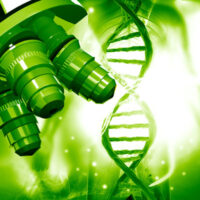DNA’s Role In Wrongful Convictions

DNA is an important part of the human body — and all living organisms, for that matter. DNA contains the instructions needed for humans to survive and reproduce. Surprisingly, humans share 99.9% of their DNA with one another. It’s that 0.1% of DNA that varies from person to person. DNA can tell us a lot about a person.
In the criminal law field, DNA can be used to help identify people who have committed crimes. DNA technology has advanced so much in recent years that it can also be used to declare those wrongfully accused of crimes innocent.
DNA testing has exonerated hundreds of people who have been wrongfully convicted of crimes —575 people since 1989, to be exact. Of those, 35 were sentenced to death.
You and your loved ones have probably used DNA tests such as 23andMe to learn more about your family and ethnicity. However, the kinds of DNA tests used in criminal cases are much more expensive. Testing starts at roughly $5,000 and can go as high as $50,000. The cost is based on the number of DNA tests needed, multiple pieces of evidence, and any specialized testing that may be necessary.
DNA tests are not always available in criminal cases, though. All 50 states have post-conviction DNA laws in place. However, many of these laws are so limited in scope that access is highly restricted.
In Alabama, for example, a convicted person can get DNA testing only if they have been charged with a capital offense. In Kentucky, people who plead guilty are barred from accessing DNA testing, even if they were coerced into the plea.
Laws like this impede true justice and prevent wrongly convicted people from proving their innocence, allowing the people who actually committed the crimes to remain free. This is why an organization called the Innocence Project works to amend these laws so that those wrongfully convicted of crimes can access DNA testing to demonstrate their innocence. Their efforts have worked. States such as Colorado and New Hampshire have recently changed their laws to make DNA testing more accessible.
Unfortunately, though, DNA is not always available at crime scenes. DNA evidence is most likely to be left behind in violent crimes, but even this number is low. In fact, statistics show that attackers leave behind DNA evidence in less than 10% of murders.
This means that in many cases of wrongful conviction, there may not be DNA evidence to test. Another thing to consider is that the ability to perform DNA testing relies on evidence being preserved. Since DNA will not be a possible defense for everyone, it is important to prevent wrongful convictions in the first place.
Seek Help for Your Criminal Defense Case
Many people have been wrongfully accused and convicted of crimes over the years. DNA testing has proven them innocent.
However, DNA is not always available. You may need other defenses from a reputable lawyer. Seek legal help from a Dade City & Zephyrhills criminal defense attorney from Madonna Law Group. To schedule a consultation, fill out the online form or call (800) 557-0411.
Source:
innocenceproject.org/dna-and-wrongful-conviction-five-facts-you-should-know/#:~:text=According%20to%20the%20National%20Registry,includes%20196%20Innocence%20Project%20clients.